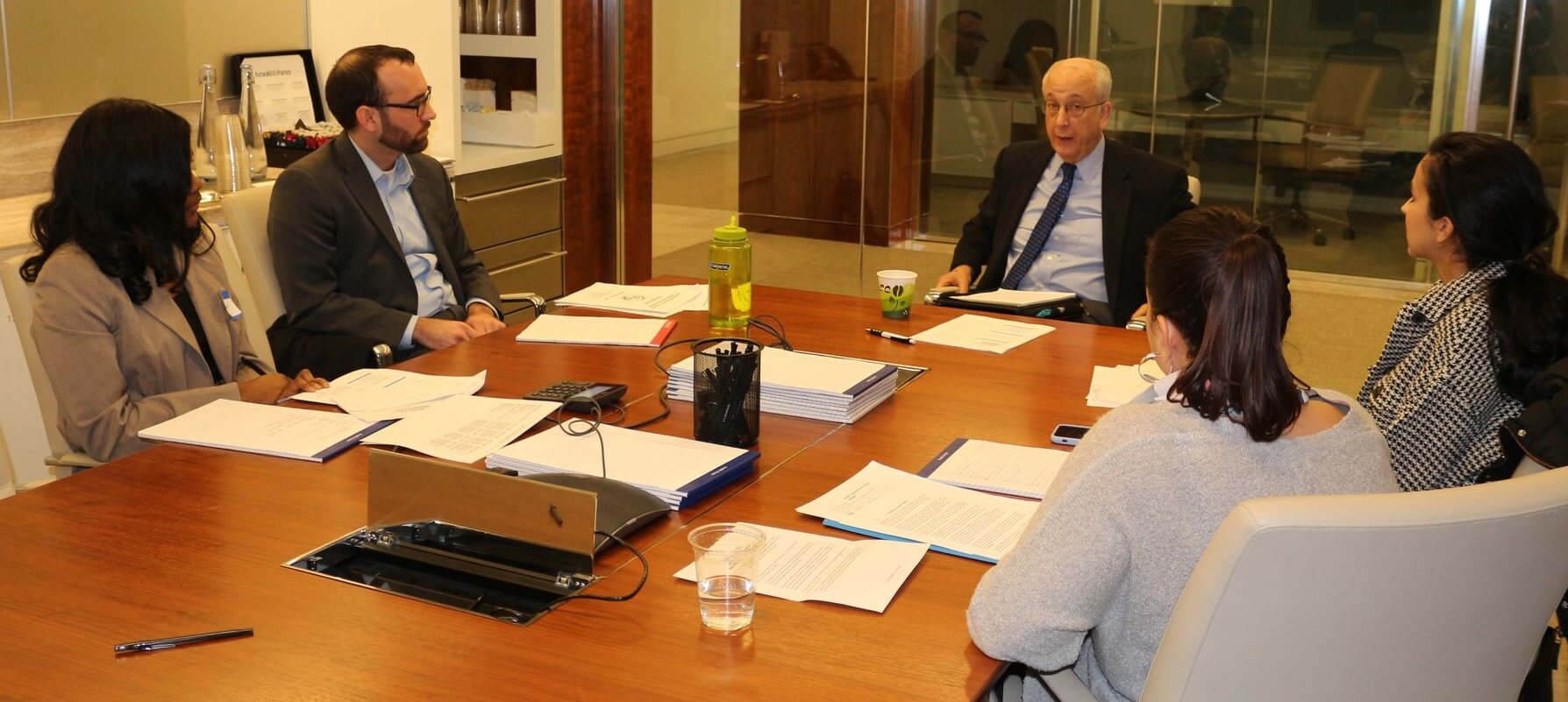
Litigation Skills Series: Mediation Training 2020
Washington Council of Lawyers hosted a Litigation Skills Series training on Mediation on Friday, February 7, 2020. The training gave participants a strong foundation of negotiation theory followed by the opportunity to put what they learned into practice.
Melissa Reinberg, mediator and adjunct professor at Georgetown University Law Center and Executive Director of Negotiation Works, led the group through a discussion on effective client preparation, how to use leverage in negotiations, and how to manage the mediation process to a successful outcome for clients.
Then the sixteen participants participated in two mediation sessions, one as an attorney and one as a client. Through a landlord-tenant fact pattern rife with (intentional) inconsistencies and vital facts known only to the landlord and the tenant, participants were tasked with coming up with a mediation strategy and then putting that strategy into use with an experienced mediator.
After the mediations, the Honorable John M. Mott, Senior Judge at The Superior Court of the District of Columbia and current neutral with JAMS Mediation, Arbitration and ADR Services addressed the participants. He spoke about the importance of mediation as a tool for advancing justice and advocating for our clients.
The program concluded with a debrief led by Melissa Reinberg, in which participants put together best practices for preparing clients and guidance on the best roles lawyers can play during the mediation. The observations and universal takeaways included those listed here.
Best Practices for Attorneys in Preparing Clients:
- Discuss mediation process
- Empower client
- Make sure client understands process is voluntary
- Discuss what is likely to happen at mediation
- Find out what client wants and why (i.e., client’s interests)
- Explore what the client thinks the other party wants and why (ie, the other party’s interests)
- Help client identify best/worst outcomes
- Help client identify walk-away alternative/likely outcome if there’s no agreement (ie, BATNA)
- Consider monetary and time costs to client if case is not settled in mediation
- Discuss whether client’s goals are realistic in light of the facts and the law
- Figure out what evidence to bring/present in the mediation
- Clarify what client is comfortable sharing; distinguish between sharing with all parties vs just the mediator
- Discuss overall mediation strategy
- Clarify roles of lawyer and client during mediation (ie, who will speak when)
- Set up how client will communicate with lawyer during the mediation
- Decide who will respond to offers (client or lawyer) before going into the mediation
Best Roles for Attorneys in the Mediation Process:
- Guide client but don’t take over
- Simplify and clarify the process/facts/evidence for client; translate legalese
- Manage details (eg, do the math calculations)
- Help client stay focused on current issues being discussed
- Help prevent client from being sidetracked by collateral disputes
- Help the client control his or her emotions
- Manage relations between parties
- Expand and clarify your client’s perspective
- Flesh out and reinforce the client’s “good story”
- Keep an eye on the legal issues, and put client’s facts in legal context (if it’s helpful)
- Be prepared to jump in and address harder issues so client doesn’t have to
- Help the client take a step back to evaluate offers and options before accepting or rejecting them
- Know when to take a break in order to speak to your client about assessing or reassessing options
- Spin out the contingencies and consequences of the proposals being discussed
- Engage in reality testing; make sure options under consideration are workable for all
- Guide your client’s negotiation strategy
Mediator comments:
- Counsel clients by reality testing and let them know what could happen if mediation fails
- In joint sessions, remember the other side may be hostile or view your client as the enemy
- Go in with a problem-solving mindset
- Use mediator as the neutral party he/she is
We are grateful to our four mediators Steve Altman, Nancy Cohen, Tiara Jackson, and Carolyn Lerner for their expertise and guidance during the simulations. Their critiques in real time were vital to the rich learning experience and future success of our participants.






